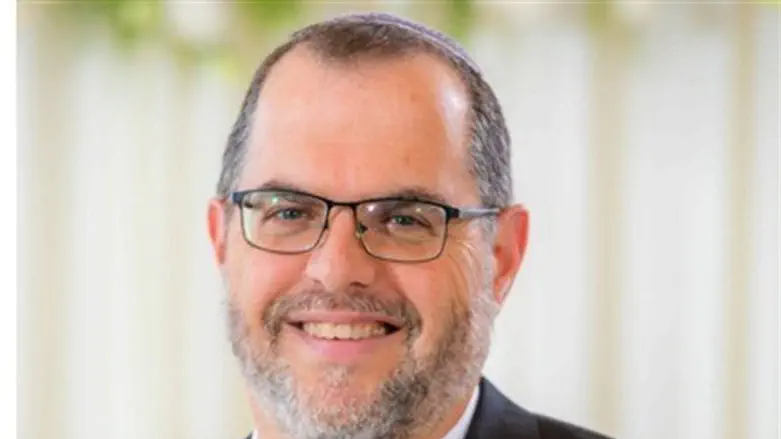
The stories of our holy forefathers and mothers do not just come to tell us historical facts, or even to teach us morality. These stories teach us about the qualities of the souls that existed in our ancestors, and which shone forth by their passing the tests with which G-d tested them. These strengths became part of the Jewish genome and are passed from the founders of our nation down to every Jew.
This is the meaning of the words of our rabbis, "The deed of the fathers is a sign to the sons" - the special qualities of the forefathers were imprinted in the souls of their descendants for generations, and are therefore now an integral part of the Jewish people. All strengths that we see within our nation throughout the years stem from the spiritual strengths of our ancestors and passed on to us. If so, what qualities and strengths did the Jewish people receive from Akeidat Yitzchak?
First and foremost, the central feature of the Akeida is Avraham’s devotion to G-d. He was ready to fulfill G-d’s will with the same willingness that he had to die for the sake of G-d’s name. The value of life in Judaism is a supreme value, and almost all of the commandments may be desecrated in order to save a life, but there are sometimes situations when the individual is required to sacrifice his life for the sake of a higher value than his personal existence.
We see this with the 3 cardinal sins: idol worship, bloodshed and incest. One must give up his life if necessary in order not to perform any of those sins. The same is true in a time when the gentiles are trying to force us to abandon our religion and enact edicts just for the sake of forcing us to sin. We find this also with soldiers who give their lives for their people and their country. The history of the people of Israel is full of countless stories of devotion. During the course of our long exile, dying to sanctify G-d’s name was mainly in order not to violate severe commandments, and in our generation, we are privileged that the reason for those who sanctify G-d’s name is to protect the State of Israel.
This strength, which we inherited from Avraham who was ready to answer G-d’s call and sacrifice his only son and from the 37-year old Yitzchak, who was willing to be offered as a sacrifice to G-d, produced generations of Jews willing to die to sanctify G-d’s name, should the need arise.
But there is another point to consider here. Avraham Avinu had another type of difficulty in fulfilling Akeidat Yitzchak. Avraham truly loved G-d and always felt a desire to do His commandments. He was so connected to the will of G-d that his nature always conformed to G-d’s will, and he always felt that what G-d commanded him, he truly wanted to do.
But by Akeidat Yitzchak the true will f G-d was that Avraham not slaughter Yitzchak. So when G-d commanded Avraham to slaughter Yitzchak, Avraham felt - for the first time in his life - that he did not want to fulfill the word of G-d! Since Avraham was so intrinsically connected to the true will of G-d that Yitzchak not be slaughtered, G-d’s commandment to bring Yitzchak up as an offering was abhorrent to him! But despite this feeling, Avraham intensified his characteristic of fear of G-d, and was ready to fulfill G-d’s commandment to sacrifice Yitzchak.
And that was Avraham's great test during Akeidat Yitzchak - doing the will of G-d even when he did not feel an inner desire to do so. Therefore, the strength revealed by Akeidat Yitzchak is "because now I know that you are G-d fearing" - the virtue of fear of G-d which enables us to always fulfill G-d’s will and which is a higher spiritual level than the level of "Avraham who loves me” as Avraham is described in Sefer Yishaya.
This is another kind of devotion which further generations have inherited from Avraham and Yitzchak; devotion to living to sanctify G-d’s name. Even when it is difficult to do the will of G-d, we give of ourselves completely for the sake of G-d and do His will.
These things are very relevant to us, the generation of redemption. A generation in which our level of love for G-d is revealed, and there is a desire to keep the commandments of the Torah out of identification and connection to it. Precisely in such a generation it is important to remind ourselves also about the characteristic of fear and awe of G-d, to remind ourselves that with all of our good will to identify with what we do, we are flesh and blood and can not understand the divine wisdom. So even when we do not feel connected to a particular commandment, we retrieve from our souls the fear of G-d which we received from our ancestors and perform the mitzvah out of devotion to the fulfillment of G-d's will.
Rabbi Shlomo Sobol is the head of the Barkai Rabbinical Organization and the rabbi of the Shaarei Yonah Menachem community in Modi'in